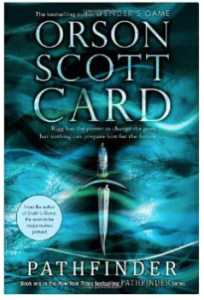It’s no secret I like science fiction. I like superhero stories, too. And fantasy, though I make no excuses for a mild dislike of Lord of the Rings. I think it’s like a million pages too long.
I know, a bunch of people just judged me and found me lacking.
Anyway, what Tolkien gets right (among other things — I know the work, I just don’t like it) is the authenticity of the relationships. The characters are likable and believable, and their actions are plausible in my world of suspension of disbelief.
I’m not necessarily drawn by special effects or explosions or cool gadgetry, though it’s entertaining enough. I like good strong characters, the more flawed, the more human, the better.
Which is why I mourned the cancelation of Firefly, stood by X-Files after the sixth season, stuck with Star Trek and all the iterations, including Voyager, when the less popular Deep Space Nine was better. It’s why I stood in line to watch a midnight showing of X-Men, forgave George Lucas for crappy writing, and hope for a reconciliation in the cinema world so Spider-Man can return to the Avengers.
It’s why I’m loving Agents of SHIELD even though many are complaining that none of the heroes show up. Well, consider this, the real stories are not the super heroes, but the regular heroes…the folks who have no super powers except those qualities such as sacrifice and love of neighbor that have them respond heroically. And by the way, the show is about Coulson, and his “humanity.” Is he now a cyborg or what? I’m enjoying the hints about his death and resurrection after the battle of New York. Give it a few more episodes, Father Roderick, I think you’ll learn to love the series enough to explore its Secrets [wink].
Which brings me to Almost Human. I’m loving it after only three episodes, partly because of the concept and mostly because of the developing relationship between Detective John Kennex, and his cyborg partner Dorian. Dorian is almost human in his response to things. It’s making for some hilarious exchanges. It’s a tired old trope in science fiction, but I think people return to the idea of computers with artificial intelligence and the development of robots with emerging human qualities to be an interesting way to explore the human condition.
We’re quick to assume that the real exploration takes place in the robot’s development of human qualities, but I think it’s the opposite, that the robot serves as a foil for the human to explores his own humanity. I saw an inkling in this as John Kennex and Dorian begin to bond after the first episode, and Kennex, especially, demonstrates an unwillingness to trust, and in many respects, a rejection of life because of depression after losing his partner. By the third episode, in which Dorian risks his “life” to save human hostages, Dorian’s regret at being close to destruction elicits empathy from Kennex, who observes the end of life is, indeed, tragic.
It flirts a little with the idea that all life precious. Whether or not Kennex attributes this appreciation for Dorian’s consciousness which does not have a soul, in a reflective moment, he begins his own healing. Coulson has a similar revelation in Agents of SHIELD when he risks his life to stay with a man until the very last minute so he does not die alone. There’s great humanity in that.
I look forward to both series unfolding and hope I’m not disappointed in the themes that develop.
Like this:
Like Loading...

